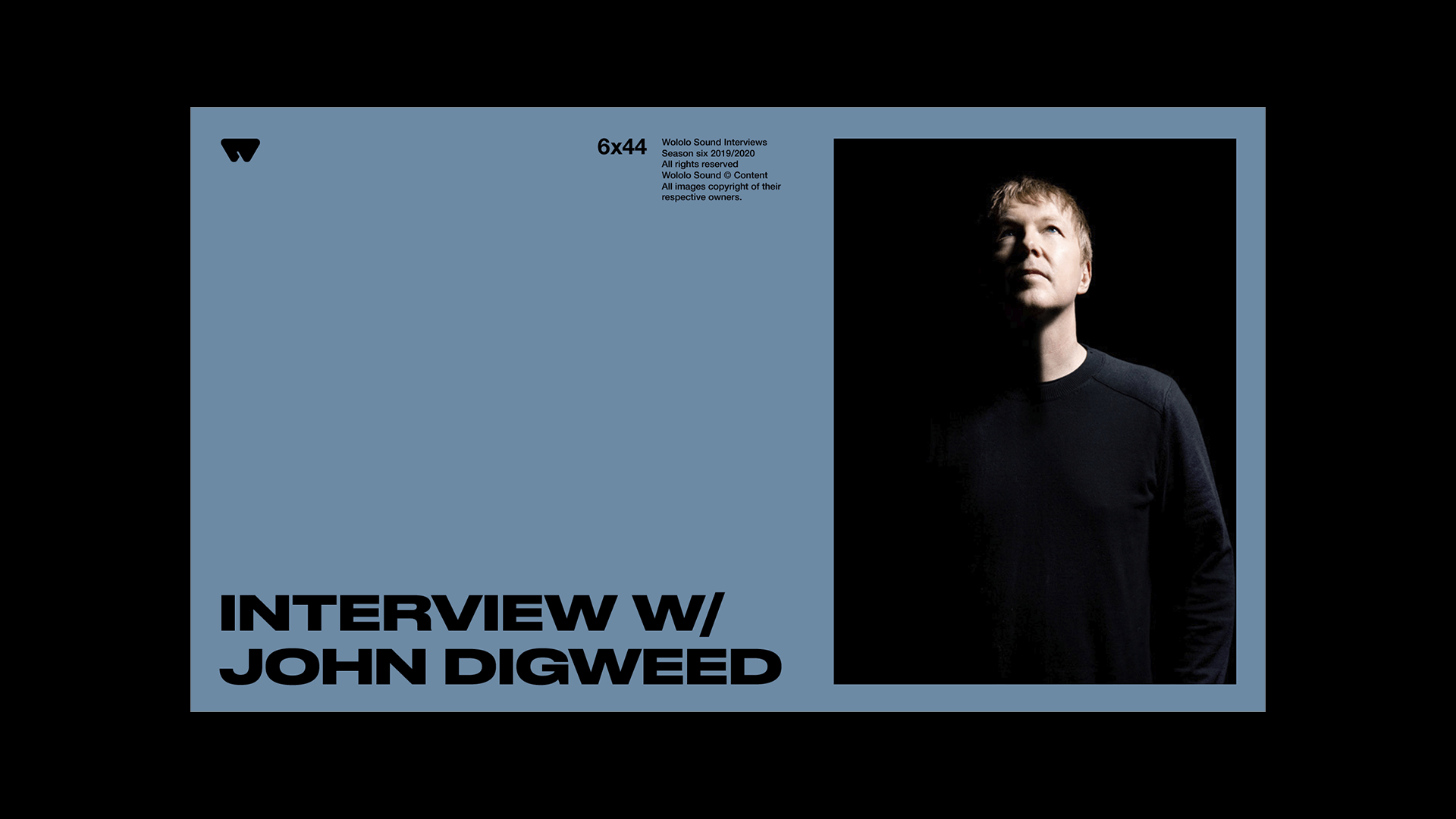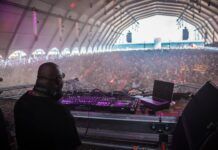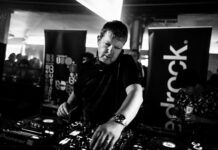Entrevistamos a John Digweed, una de las figuras referentes en la escena progressive mundial, tras el estreno de su último álbum ‘Quattro’
Cualquier persona que conozca mínimamente la historia y la trayectoria de la música electrónica conoce a una de las leyendas británicas, John Digweed. Por fín tenemos el gusto de conversar con él sobre la actualidad musical personal y global: su último álbum, su sello, la situación del COVID-19, su proyectos a lo largo de su carrera y su futuro cercano. A continuación podéis leer toda la entrevista a John Digweed.
Wololo Sound: Hola John mil gracias por atendernos. Queremos empezar por tu álbum ‘Quattro’, que ha salido recientemente a la venta vendiéndolo todo en formato vinilo. ¿Cómo se creó la idea de este proyecto? Y, ¿cómo habéis escogido entre tantos artistas para lanzar nada más y nada menos que casi cincuenta tracks?
John Digweed: La idea de ‘Quattro’ surgió de una combinación de más de nueve meses de trabajo: tuve que contactar con algunos de mis artistas favoritos así como buscar nuevos artistas con talento. Este proyecto iba a ser originalmente un doble CD, pero a medida que iban llegando más temas vi la oportunidad de mostrar más sonidos downtempo/ambientales en un tercer CD, “Soundscape”. Finalmente decidí añadir el CD “Juxtaposition”, un proyecto de colaboración de larga duración en el que Nick Muir y yo ya habíamos estado trabajando.
Wololo Sound: Hey John, thank you so much for having us. We would like to start this interview by asking you about your album ‘Quattro’, which has recently been released in vinyl format. How was the idea of this project created? And how did you choose among so many artists to release no less than fifty tracks?
John Digweed: The idea for Quattro derived from a combination of over nine months of work: contacting some of my favorite artists as well as sourcing new talented artists. This project was originally going to be a double CD but as more tracks came in I saw the opportunity to showcase more downtempo/ambient sounds on a third CD, “Soundscape”. I finally decided to add the “Juxtaposition” CD, a longtime collaborative project that Nick Muir and myself had already been working on.
WS: Ha sido lanzado por tu sello Bedrocks Records, siendo este uno de los considerados con más calidad a la vez que dificultoso para firmar de la escena. ¿Qué tiene que tener un track para que empecéis a tenerlo en cuenta? ¿Tienes un equipo ayudándote con las promos que recibís?
JD: Yo mismo reviso cada una de las promociones que llega. Sólo tenemos 24 lanzamientos de singles al año (2 al mes), así que tengo que asegurarme de que cada tema cuenta y, de alguna manera, que sea especial. Durante estos días hay muchísima música nueva flotando y me envían cientos de promociones a la semana, así que es imposible lanzar todo.
WS: It has been released on your label named Bedrocks Records, which is considered to be one of the best quality labels but also hard to sign a track with. What does a track need to have so you start bearing it in mind? Do you have a team helping you with the promos you receive?
JD: I go through every single promo myself. We only have 24 single releases a year (2 a month), so I have to make sure every track counts and is special in some way. There is so much new music floating around these days and I get sent hundreds of promos a week, so it’s impossible to release everything.
WS: También ayudáis a la captación y promoción de nuevos talentos en la industria, algo que los jóvenes artistas agradecerán de por vida. Cuéntanos cómo ayudáis y cómo funciona esa faceta de Bedrocks.
JD: Bedrock tiene un buen nombre dentro de la industria y si un nuevo artista tiene un lanzamiento en mi sello o en cualquier otro similar, es un gran impulso para ese nuevo artista ya que puede ayudarle a conseguir bolos y más lanzamientos / remixes. Para nosotros, se trata de dar a los artistas un escenario en el que brillar y con suerte, que puedan crear oportunidades a partir de ello.
WS: You also help to attract and promote new talent in the industry, something that young artists will appreciate for life. Tell us how you help them and how this side of Bedrocks works.
JD: Bedrock has a good name in the industry and if a new artist has a release on my label or any similar labels it’s a great boost for that new artist that can help them get bookings and more releases / remixes. For us, it’s all about giving the artists a stage to shine on and hopefully, they can create opportunities from that.
WS: También junto a Nick Muir formas el proyecto Bedrock. ¿Por qué decidiste dejar la producción solitario y si hacerlo en pareja? ¿cómo enfocáis el proyecto para el futuro?
JD: No había ninguna razón real para este cambio de nombre. El último proyecto con Nick fue ‘Juxtaposición’ en el CD de ‘Quattro’, que parece gustarle mucho a la gente.
WS: You form the Bedrock Project together with Nick Muir. Why did you decide to stop producing by yourself and do it as a couple with Nick? How do you approach the project for the future?
JD: There was no real reason for this name change. The last project with Nick was ‘Juxtaposition’ on the ‘Quattro’ CD which people seem to like a lot.
WS: Otro de tus grandes compañeros es Sasha. Habéis vivido tours y proyectos en conjunto, algún alejamiento temporal… ¿Cómo empezó esa química? Y ¿por qué decidisteis volver a juntaros esta última vez?
JD: Los dos empezamos a pinchar juntos en 1992 y fuimos a muchas giras y tuvimos residencias de éxito juntos, como Twilo en NYC. Está bien tomarse un descanso porque hace que volver a unir fuerzas después de un tiempo sea más divertido, a los fans siempre les encanta vernos pinchar juntos de nuevo.
WS: Another great colleague of yours is Sasha. Although we have seen you a bit distant from each other sometimes, you have toured and made projects together. How did that chemistry start? And why did you decide to get back together this last time?
JD: We both started playing together in 1992 and went on many successful joint tours and residencies, such as Twilo in NYC. It’s good to take a break and because it makes it all the more fun to rejoin forces after a while, fans always love seeing us play together again.
WS: John Digweed es sinónimo de veteranía y calidad musical, por ello el respeto de la industria. Pero ¿cómo se ha construido su carrera desde los inicios hasta la actualidad? ¿Podrías contarnos algunos de los momentos importantes que recuerdes, para bien o para mal?
JD: Lo más importante es no renunciar nunca a tu sueño, no importa cuántas veces creas que nunca lo lograrás. Sé siempre humilde y da el 100% en cada concierto.
WS: John Digweed is synonymous with expertise and musical quality, hence the respect of the industry. But how has his career been built from the beginning to nowadays? Could you tell us about some of the important moments you remember, for better or for worse?
JD: The most important thing is never to give up on your dream no matter how many times you think you will never make it. Always be humble and give 100% at every gig.
WS: Así llegaste en 2001 a ser nombrado como DJ número 1 por DJ Mag. ¿Qué diferencias ves entre esa lista y la actual? Y, ¿qué piensas sobre ese cambio?
JD: Ser DJ no es una carrera. No se trata de ser el primero, se trata de ser constante. Prefiero tener una carrera de más de 30 años con muchas fiestas e historias increíbles que tener una carrera más corta que ocurrió de manera fugaz.
WS: That’s how you became noted DJ number 1 by DJ Mag in 2001. What differences do you see between that list and the current one? And what do you think about that change?
JD: DJ’ing is not a race. It’s not about being first, it’s about being consistent. I would rather have a 30 year plus career with all the amazing parties and stories than a shorter career that happened instantly.
WS: Indagando en el progressive house, se ha mal llamado últimamente a varias vertientes como el más mainstream o el actual melodic techno con la característica progresión de melodías. ¿Cuál es tu visión sobre el progressive house y estos sub géneros?
JD: Pincho todo tipo de música y no quiero que me metan en una caja con géneros, así que si es un gran tema y me gusta, trataré de pincharlo en un club o en mi programa de radio.
WS: Looking into progressive house, some of its variants have been wrongly named such as the one that we could consider more mainstream or the current melodic techno with the characteristic melody progression. What is your vision about progressive house and these subgenres?
JD: I play all types of music and don’t want to be put in a box with genres so if it’s a great record and I like it I will try and play it at a club or on my radio show.
WS: Terminando no podíamos no preguntar por el Covid-19. ¿Cómo ves el futuro de la música tras esta pandemia? ¿Crees que los gobiernos podían haber reaccionado de otra manera? Europa, Reino Unido, EEUU…
JD: A corto plazo, no será un gran año para fiestas/festivales/clubes, con todas las reuniones sociales limitadas. Algo como esto que sucedió tan rápido pilló a todo el mundo desprevenido, así que creo que hasta que no consigamos una vacuna va a ser un mundo muy extraño en el que vivir.
WS: Finishing up, we couldn’t not ask about the COVID-19. How do you see the future of music after this pandemic? Do you believe that governments could’ve reacted in a different way (Europe, UK, USA…)?
JD: In the short term, it’s not going to be a great year for parties/festivals/clubs, with all social gatherings being limited. Something like this happening so quickly caught the whole world off guard, so I think that until we get a vaccine it’s going to be a very strange world to live in.
WS: Tras la cancelación de todos los espectáculos musicales. ¿Cómo está tu situación con respecto a esos shows que tenías programados? ¿Crees que se va a tener que pensar nuevos proyectos musicales diferentes para que la industria músical no caiga en picado en este parón del que no se ve el fin todavía?
JD: Será lo mismo para todos. Todos tenemos que sentarnos y esperar a que sea seguro viajar de nuevo. Estoy seguro de que la gente usará este tiempo para ser muy creativa y durante y después de la pandemia surgirán nuevos sonidos musicales.
WS: After the cancellation of all musical events, how is your situation regarding those shows that you had scheduled? Do you think that new different musical projects will have to be created so that the music industry does not fall into a tailspin in this long stop?
JD: It’ll be the same for everyone. We all just have to sit and wait for it to be safe to travel again. I’m sure people will use this time to be very creative and new music sounds will emerge during and post the pandemic.
A continuación unas preguntas cortas:
– Lugar más raro en el que has actuado: The Cave (República Dominicana)
– Colaboración soñada: Larry Levan
– Club favorito: Twilo NYC
– ¿Qué serías de no dedicarte a la música? Agente de viajes
– Una ciudad para vivir: Tokyo
Finally, some short questions:
– The weirdest place you’ve ever played at. The Cave (Dominican Republic)
– Dream collaboration? Larry Levan
– Favorite club? Twilo NYC
– What would your job be if you didn’t go into music? Travel agent
– A city to live in? Tokyo








